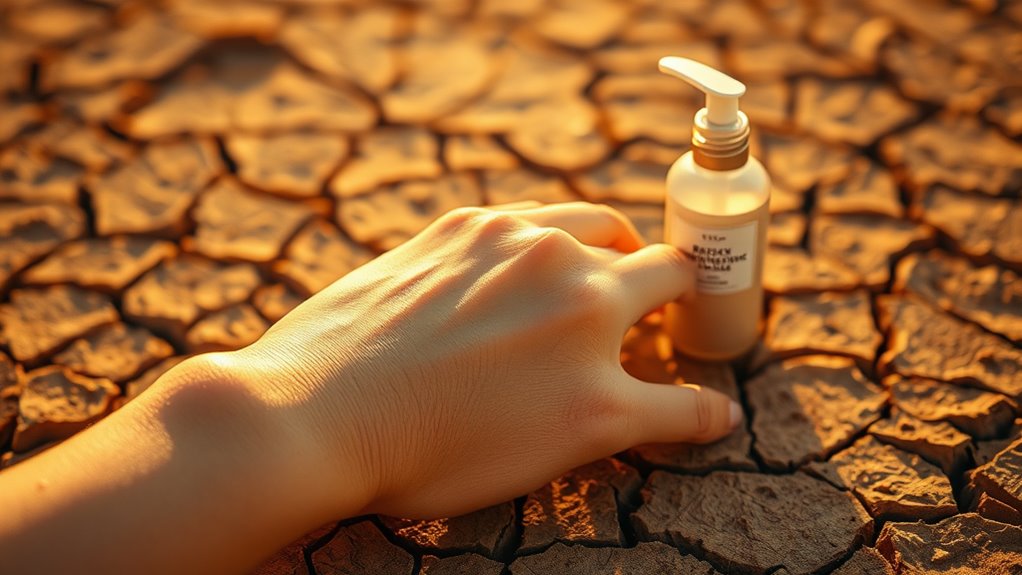The Shocking Reason Your Skin Is Always Dry – and How to Fix It Fast!
Understanding the Root Causes of Dry Skin
When you understand the root causes of dry skin, you can take effective steps to alleviate it.
Often, dry skin is caused by factors like harsh weather, low humidity, or using irritating products. You might also find that certain health conditions or medications exacerbate the problem.
Identifying these triggers is key to discovering dry skin solutions that work for you. Consider switching to gentler cleansers, moisturizing regularly, and protecting your skin from environmental stressors.
The Role of Dehydration in Skin Health
Dehydration can significantly impact your skin’s health, leading to dryness and a dull appearance. When you don’t drink enough water, your skin can lose its natural moisture, making it feel tight and uncomfortable. Staying hydrated helps maintain your skin’s elasticity, glow, and overall vitality.
| Symptoms of Dehydration | Tips to Stay Hydrated | Benefits of Hydration |
|---|---|---|
| Dry, flaky skin | Drink 8 glasses daily | Improved skin elasticity |
| Itchy skin | Eat water-rich foods | Brighter complexion |
| Dull complexion | Set reminders to drink | Reduced fine lines |
| Increased sensitivity | Carry a water bottle | Healthier skin overall |
Environmental Factors That Contribute to Dryness
Many people don’t realize that environmental factors can also play a significant role in skin dryness. If you live in a dry climate, the lack of humidity can sap moisture from your skin.
Similarly, harsh winds can strip away natural oils, leaving your skin feeling tight and uncomfortable. Indoor heating during winter months can further exacerbate this issue, drying out the air and your skin.
Pollution and UV exposure can also damage your skin’s barrier, making it more susceptible to dryness. By understanding these factors, you can better protect your skin and create a more nourishing environment for it to thrive.
Effective Moisturizing Techniques You Need to Know
To keep your skin hydrated and healthy, mastering effective moisturizing techniques is essential.
Start by applying your moisturizer while your skin’s still damp, locking in that vital moisture. Choose a product with humectants like glycerin or hyaluronic acid to attract water.
Don’t forget to layer! Use a thicker cream or oil over your usual moisturizer for extra protection against dryness.
Also, be consistent—make moisturizing part of your daily routine.
Finally, don’t skip your hands and feet; they need love too!
Dietary and Lifestyle Changes for Lasting Hydration
Moisturizing your skin is just one part of the equation; what you eat and how you live play a significant role in maintaining hydration.
Start by drinking plenty of water throughout the day—aim for at least eight glasses. Incorporate hydrating foods like cucumbers, oranges, and avocados into your meals.
Healthy fats, such as those found in nuts and fish, nourish your skin from the inside out. Don’t forget to limit caffeine and alcohol, as they can dehydrate you.
Plus, establishing a consistent sleep schedule and managing stress can keep your skin looking its best, helping you feel connected and vibrant.

